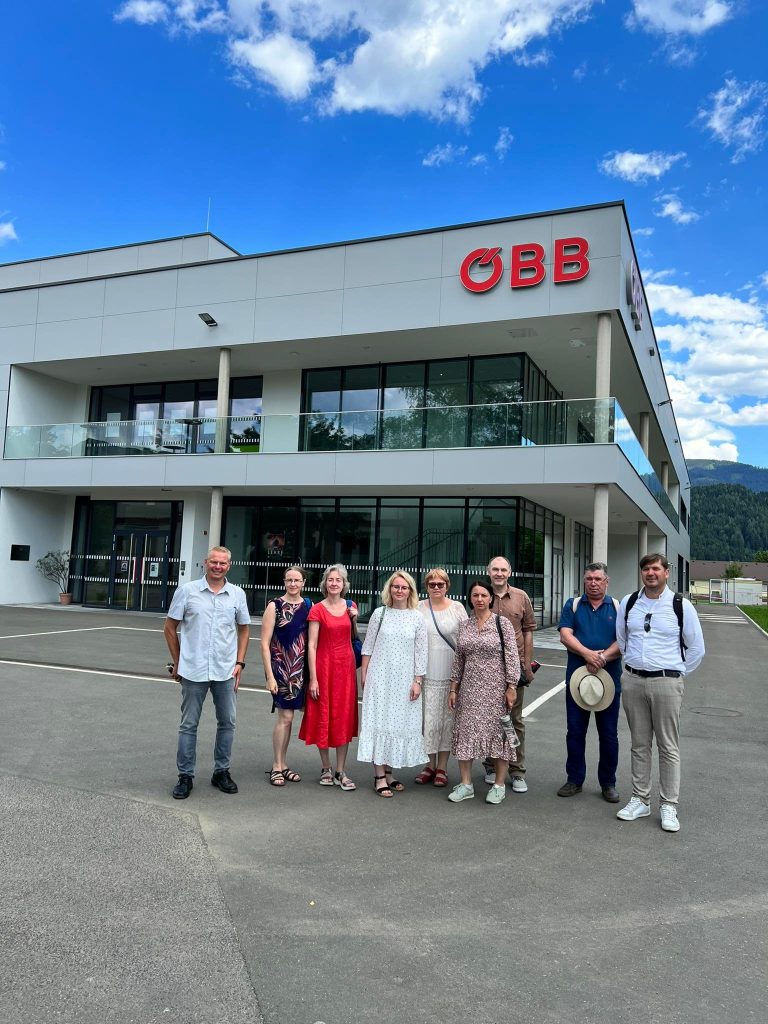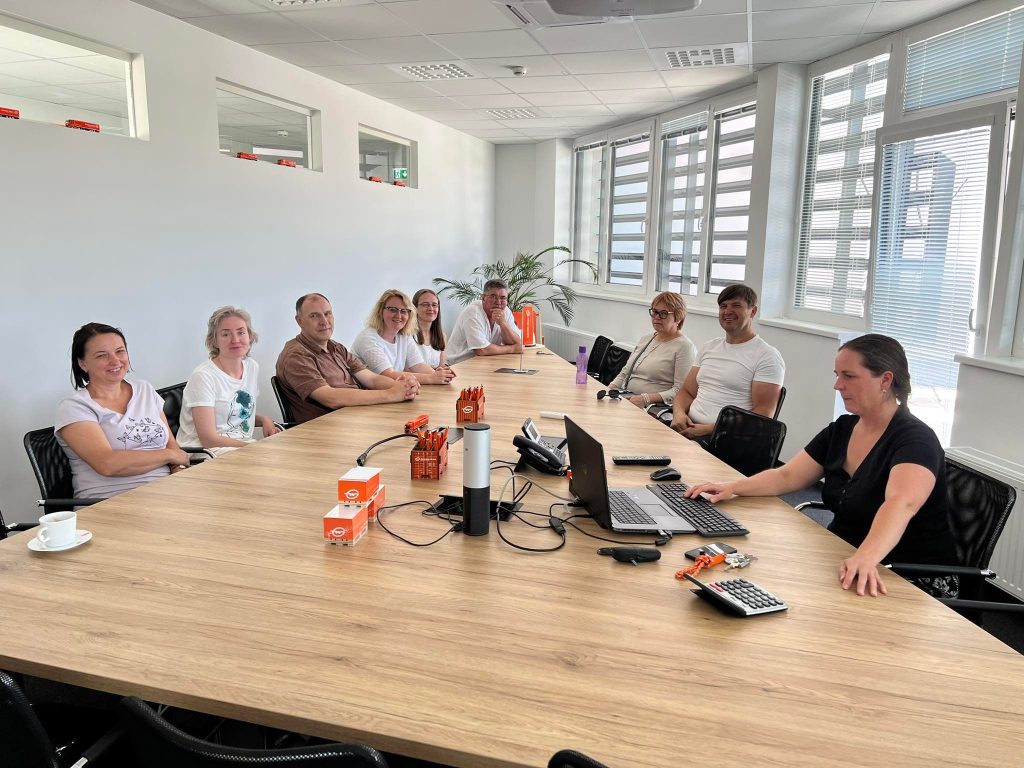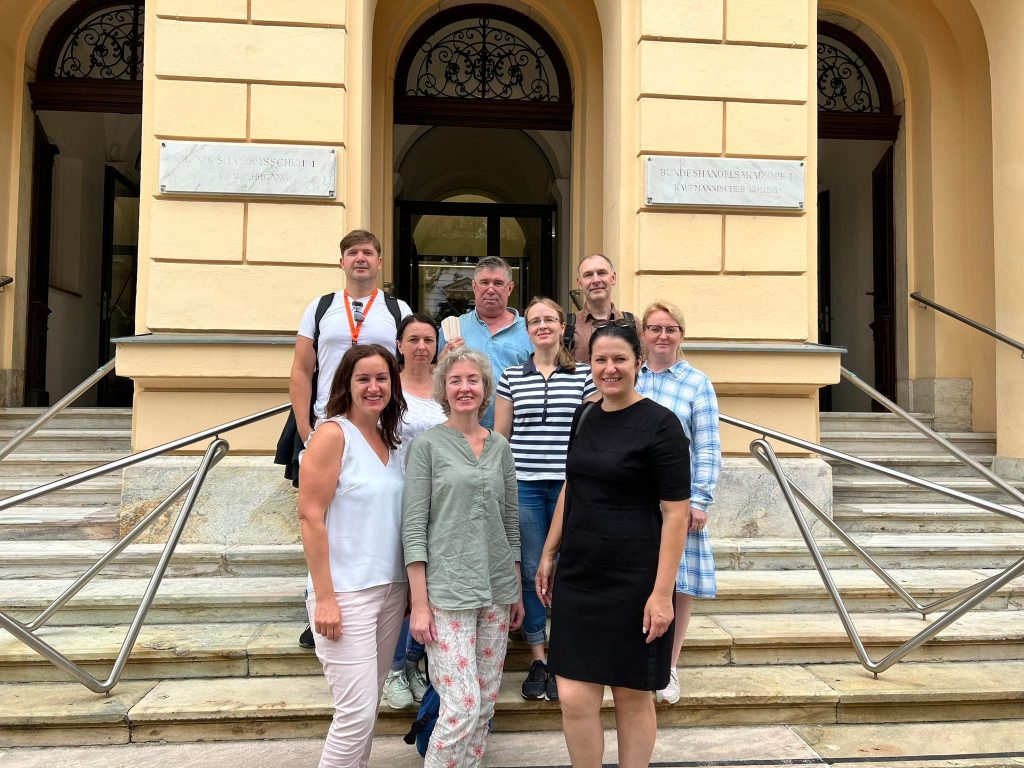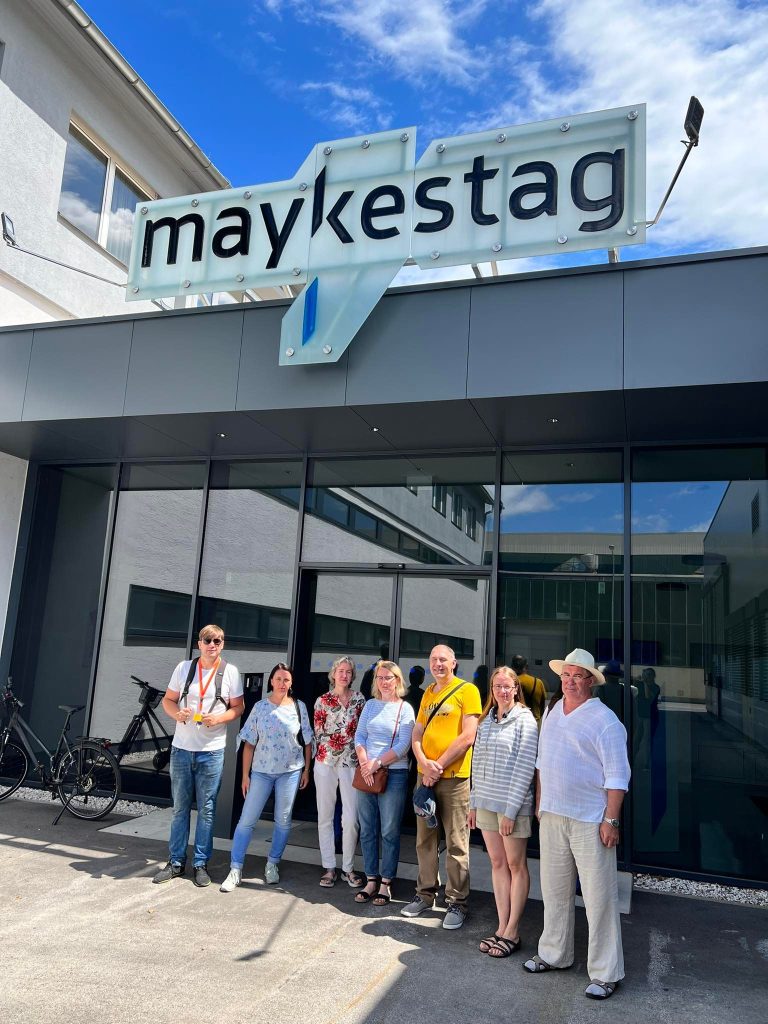As part of the Erasmus+ project 2020-1-LT01-KA102-077610 “Promoting of Railway transport specialists’ digital competences”, 8 teachers from the Vocational Training Department of Vilnius College of Technology and Design, in the framework of the Erasmus+ project 2020-1-LT01-KA102-077610 “Promoting of Railway Transport Specialists’ digital competences”, visited on the 4th-15th of July, the most advanced vocational educational establishments in Austria of different educational profiles, the most advanced companies in the world of railway transport, logistics, and IT, and in the most advanced railway transport, logistics, and IT enterprises, not only in Austria.
The project gave participants the opportunity to learn about Austria’s education system, which has a long tradition of vocational training, i.e. dual vocational training, which has been running in the country for centuries.
As part of the project’s main objective, to improve the professional and general competences of rail transport teachers in the field of digital technologies for rail transport, the project took place at the new Austrian Federal Railway Training Centre in Knittelfeld (ÖBB-Lehrwerkstätte Knittelfeld). The Head of Vocational Training presented the company’s activities, the specificities of dual vocational training and the practical training facilities. During the visit, discussions were held on the development of competences for rail transport workers (with a particular focus on digital competences), the duration of training, the conduct of examinations and other issues.

The most impressive visit was to the Infineon Centre for Scientific and Technological Progress in Villach (Infineon Technologies Austria AG). The company, with around 50,280 employees, is one of the world’s largest semiconductor manufacturers and a world leader in product quality. “Infineon’s products are widely used in the automotive, industrial and road market sectors, as well as in the production of smart cards and security products. I was impressed by the cutting-edge technology, automation and robotics in the company’s laboratories.

Rail transport is closely linked to the logistics sector and international transport by all modes. A visit to Gebrüder Weiss (Maria Saal), a multinational transport and logistics company, provided an opportunity to observe the operations of a multinational logistics company up close. The company has 180 locations in 35 countries and employs around 8000 people. “Gebrüder Weiss Holding AG is not only active in land, air and sea freight transport and logistics solutions, but also has a number of subsidiaries, including logistics consultancy and technology companies, as well as companies involved in communication solutions, market research, training and companies involved in rail freight and rail transport.
During the visit, we discussed staff training and appraisal issues, observed the processes in place, and familiarised ourselves with the technologies used.

As mentioned above, vocational training in Austria is dual vocational training, which consists of two parts: a theoretical part in a vocational training institution and a practical part – that is, the majority of the training period – in a company. In this way, young people get the practical skills they need and companies get young skilled workers who meet their needs.
The project gave participants the opportunity to get to know the training institutions that provide vocational training. We visited the Bundeshandelsakademie und Bundeshandelsschule in Klagenfurt and the Höhere Technische Bundeslehr- und Versuchsanstalt in Ferlach.
The Federal Academy of Commerce has several types of schools: commercial academy, commercial school, commercial school for athletes, postgraduate courses, college and evening school.
Training at the Higher Technical Federal Institute for Training and Research in Ferlache includes:
- Weapons engineering (Higher Technical School of Mechanical Engineering – focusing on training in weapons and safety engineering; Vocational School for Armourers with practical training);
- Manufacturing engineering (Mechanical Engineering Technical High School – focusing on manufacturing engineering training; Mechanical Engineering Vocational School with practical training – focusing on tool and fastener engineering);
- Jewellery and engraving (Technical High School of Art and Design – focuses on jewellery training; Technical High School of Art and Design – focuses on engraving training; Technical High School of Art and Design – focuses on ornamental blacksmithing and metalsculpting training);
- Industrial design (Mechanical Engineering Technical High School – focus on industrial design training; College of Design – object design; Advanced Design Course – object design);
- Master’s degree (School of Industrial Mechanical Engineering; Graduate School of Art and Design).
The participants got to know the academic community of the educational institutions, the programmes, the duration of the training and the teaching methods. All educational institutions have a strong focus on the exact sciences and digital competences.

The project visited the Maykestag tool factory in Ferlach, a partner of the Federal Institute for Higher Technical Education and Research. The company focuses on the production of high-quality tools. The company’s dual vocational training system requires apprentices to develop analytical thinking, programming skills and digital competences.

The system for testing pupils and students was tested at the Carinthian Chamber of Commerce Service Centre in Klagenfurt (WIFI). The mission of this centre is to help people in business to cope better with today’s tasks and tomorrow’s challenges. This non-profit organisation aims to improve technical and entrepreneurial skills and to provide assistance with company-specific issues. Dagmar Kirchbaumer, Head of the Testing and Training Centre, presented the organisation’s activities, the student testing system that has been tested by our vocational teachers, and the Austrian centralised qualification examination system and its specific features.
During our visits to educational establishments and companies in Austria, we noticed an interesting fact: in order to protect trade secrets from competitors, companies forbid photographs to be taken inside the company, and collect written pledges not to disclose any information about the company’s equipment and technology.
The project participants learnt best practices from professionals in the fields of rail transport, logistics and information technology during visits to Austrian companies and educational institutions. They will be able to take this experience back to their work.


